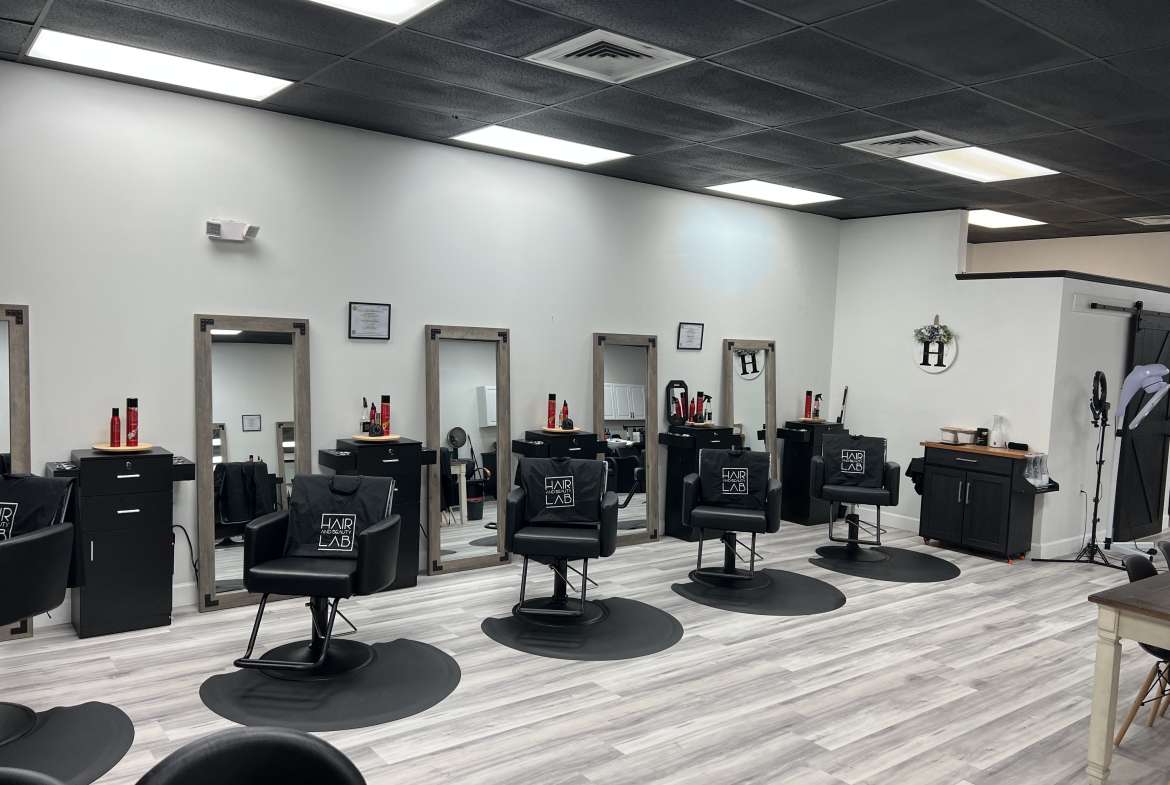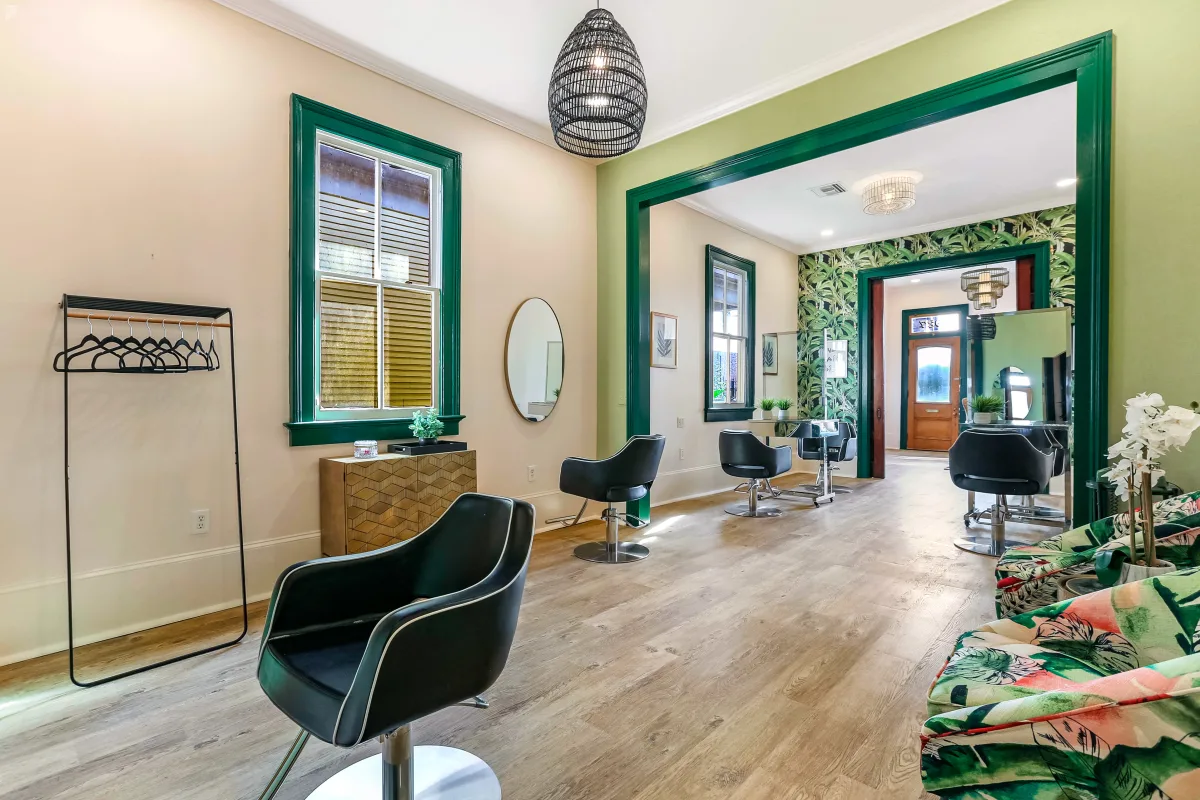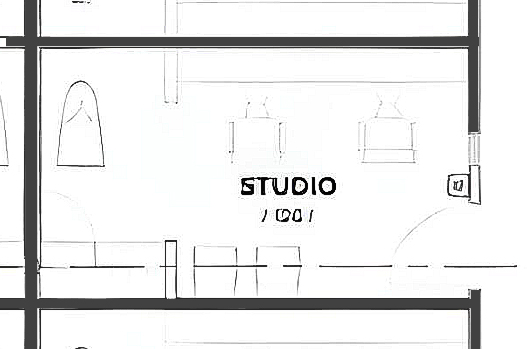High-end Salon Suites for Your Charm Organization
High-end Salon Suites for Your Charm Organization
Blog Article
Strategic Choices: Weighing the Benefit of Renting Versus Possessing a Beauty Parlor Space to Maximize Long-Term Success and Financial Practicality
When it comes to developing a hair salon service, among the important decisions that proprietors must meticulously consider is whether to rent out or own the room in which they operate. The option between leasing and possessing a beauty salon room can have a significant effect on the long-term success and monetary wellness of business. Variables such as operational versatility, economic implications, and investment possible play an important duty in this tactical decision-making procedure. By discovering the advantages and downsides of each alternative, salon owners can make educated selections that straighten with their business goals and ambitions.

Pros and Cons of Renting Out
When taking into consideration the choice in between leasing a beauty parlor area or having one, it is vital to consider the pros and disadvantages of renting to make an informed selection. One key benefit of renting out a beauty parlor area is the versatility it uses. Leasing allows salon proprietors to examine various places or upscale their company without the commitment of a long-term mortgage. Additionally, renting typically involves fewer in advance expenses, making it a much more easily accessible option for brand-new hair salon owners or those with budget restraints.

Financial Factors to Think About

Considering the financial implications of leasing a hair salon space versus having one is crucial for making a well-informed service choice. When assessing the monetary variables, it is important to examine the first costs related to each alternative. Leasing a hair salon space generally needs a down payment and month-to-month rental fee settlements, whereas owning involves a deposit, home loan repayments, building tax obligations, and upkeep expenditures.
In addition, the long-term financial implications differ in between renting out and possessing. Renting out gives adaptability yet might lead to higher advancing expenses gradually as a result of rental rises. On the various other hand, possessing a hair salon space provides prospective equity development and the chance to develop possessions. It is very important to perform a cost-benefit evaluation to establish which alternative lines up finest with your financial goals and company technique.
Leasing might supply lower ahead of time costs, enabling you to allot more sources to advertising and marketing and company development. Reviewing these financial elements adequately will aid you make a strategic decision that enhances your hair salon's long-lasting success and economic viability.
Operational Versatility and Control
Ideal functional performance plays an essential function in figuring out the equilibrium in between adaptability and control when determining in between renting and owning a beauty salon space. Leasing a beauty salon area provides intrinsic versatility as it permits much easier modifications to altering market problems, client preferences, or company needs. This flexibility is particularly advantageous for new salon owners or those aiming to examine various areas prior to dedicating long-lasting. Additionally, renting out gives the benefit of not being connected down to a particular residential property, making it possible for much easier relocation if required.
On the other hand, possessing a beauty parlor room supplies a greater feeling of control over the highlights hair residential or commercial property and its procedures. Owners have the liberty to personalize the space to their preference, implement long-lasting strategies without the danger of lease terminations, and possibly construct equity gradually. Ownership additionally comes with obligations such as building maintenance, insurance policy, and residential or commercial property tax obligations, which can impact the general economic commitment.
Eventually, the choice in between leasing and having need to consider the preferred degree of operational flexibility and control that lines up with the salon's long-lasting objectives and vision.
Financial Investment Possible in Ownership
Given the operational considerations discussed earlier, checking out the investment potential in beauty salon ownership clarifies the financial effects and lasting advantages that feature possessing a hair salon room. Beauty parlor ownership presents a distinct opportunity for business owners to develop equity and possessions in time. By buying a salon space, proprietors have the prospective to benefit from property appreciation, which can offer as a beneficial property in the long run. Additionally, possessing a beauty parlor offers stability in terms of fixed mortgage repayments, offering predictability in economic planning contrasted to varying rental prices.
Additionally, possession permits greater control over the area, enabling owners to black hair salon personalize and customize the salon to their certain brand name and vision without the constraints typically enforced by property owners. This degree of control can boost the overall customer experience and brand name identification, potentially resulting in boosted customer retention and company growth.
In regards to financial investment potential, having a beauty parlor room can also open up chances for added revenue streams, such as renting extra space to various other beauty experts or integrating retail sales within the beauty parlor. Salon suites for rent. These varied income sources can add to the general economic health and sustainability of the service
Long-Term Security and Development
With an emphasis on sustainability and development over time, establishing long-lasting stability and promoting development are essential facets of hair salon ownership. To make sure long-lasting security, salon owners should meticulously consider elements such as place, market trends, and monetary planning. Picking in between renting out and possessing a hair salon area plays a considerable role in determining business's development capacity.
Renting a salon room gives adaptability and lower initial prices, enabling owners to allocate sources in the direction of improving services and advertising efforts. However, long-lasting rental costs can impact profitability and restrict the capacity to develop equity in the residential property. On the various other hand, having a beauty parlor space offers security through fixed home loan payments and the capacity for residential or commercial property appreciation. By having the area, hair salon owners have even more control over customizing the property to match their brand and can Learn More profit from long-term possession growth.
Eventually, the decision in between renting out and possessing a salon space ought to line up with the proprietor's long-lasting organization objectives and financial goals. Whether prioritizing versatility or equity structure, a strategic approach to home ownership can substantially affect the beauty parlor's security and development trajectory.
Final Thought
In verdict, the choice in between leasing and having a beauty parlor room calls for a mindful analysis of economic variables, functional versatility, investment capacity, and long-lasting stability. Both choices come with their own collection of advantages and downsides, and it is important for beauty parlor owners to consider these variables to maximize long-term success and economic practicality. Salon suites Belleville Michigan. Eventually, the option between renting out and owning must be based upon a comprehensive analysis of specific business objectives and scenarios
Report this page